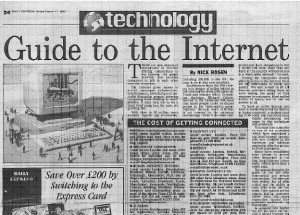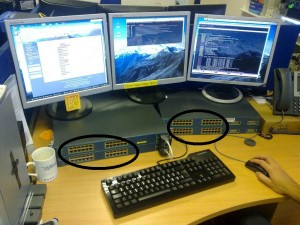Now that the Digital Economy Bill has been published we can comment on its specifics. and in particular on the aspects relating to what the Government describes as “Online infringement of copyright” or illegal filesharing/Music Piracy in every day language. It doesn’t just pertain to music, it includes movies and software as well – many of the abuse notices received by Timico in respect of naughty customers are concerned with the latter.
First of all the proposed Bill grants Lord Mandelson far too much control. The Secretary of State will have the power to make specific recommendations on costs and impose an obligations on ISPs to use technical sanctions. The uninitiated should read this as “telling ISPs how much they will be allowed to charge rights holders for the implementation of the requirements of the Bill. Technical sanctions = cutting off broadband connections.
In the first instance the industry thinks these responsibilites should be given to an independant body. Also the idea that ISPs should share some of the cost burden is contrary to the Government’s own legislation – the Regulation of Investigatory Powers Act (2000) (RIPA) – which considers it appropriate for ISPs to be reimbursed for costs incurred when assisting in serious criminal investigations, such as terrorism or kidnap.
What the Government is saying here that it believes that it is ok to recover costs for assistance with the pursuit of serious criminals but not for costs incurred pursuing an alleged civil infringement on behalf of a commercial interest. A scenario that normally burdens the party with the commercial interest with the cost.
ISPs are happy to help and indeed are not in favour of copyright infringement but think it is grossly unfair that they have to pay to police it.
Secondly the suspension of users’ accounts as a potential sanction is wholly disproportionate and is in direct opposition to the objectives outlined in Digital Britain to increase online participation. It seems that this will enable the suspension of users’ accounts without a ruling from a judge. This is potentially in defiance of the forthcoming EU Telecoms Package that guarantees users’ rights to a presumption of innocence until proved guilty.
The Government seems to be blind to the fact that serious copyright infringers can easily evade detection by employing encrypted P2P (for example).
Instead of wielding a big stick Government should be asking rightsholders to reform the licensing framework so that legal content can be distributed online to consumers in a way that they are clearly demanding. Currently the online copyright law is a mess spread across many countries and legislatures and the costs to industry of getting it sorted are huge.
The Government is trying to push this Bill through quickly but it isn’t going to stop the problem. Lift up your heads and raise your voices all!





